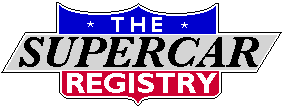

Dedicated to the Promotion and Preservation of American Muscle Cars, Dealer built Supercars and COPO cars. |
|
|||||||
| Register | Album Gallery | Thread Gallery | FAQ | Members List | Calendar | Become a Paid Member | Search | Today's Posts | Mark Forums Read |

|
|
|
Thread Tools | Display Modes |
|
#21
|
|||
|
|||
|
What if you had a 69 yenko with a non original motor, and a 69 camaro, all original 6 cyl with paper work.I would pay more for the yenko.I guess it all depends on the car.If you have paper work on an original car,I think a CE replacement engine would be fine but wouldn't be worth as much as an original,and would be worth more then a car with a non matching engine.I am glad I bought my car 20 years ago.It would be hard to know your getting an original car today, with repoduction protecto plates,window stickers,broadcast sheets, heck even repo 69 camaro convertible bodys.

__________________
Les Dixon 68 camaro SS 396 RS convertible L34/M40/G80/U69 |
|
#22
|
|||
|
|||
|
[ QUOTE ]
It doesn't matter whether they are '68 Baldwin-Motion Phase III Camaros, ... [/ QUOTE ] But since the Motion car by definition didn't have it's original engine, as Joel had to take it out to make it a Phase III, how do we think about that? How do you verify the engine Joel put in it? Does it come down to a correctly dated CE engine vs a non-correctly dated CE engine?  My head hurts...
__________________
Jeff M. ZL1 #49 (Dale, Waukesha WI) Super Stock restoration by SCW; 9561AA (Walters, Hebron OH) Super Stock motor by the Grump |
|
#23
|
|||
|
|||
|
Don't leave out reproduction POP's also... I've seen at least 2 lately.
(edit: I see you did mention that... only with the longer spelled out Protect-O-Plate...)
__________________
David |
|
#24
|
|||
|
|||
|
Jeff,
I think I'm feeling the same pain. Craig's original criteria were: "I'am defining the original motor or block as follows: 1. The one it was born with from the factory. 2. The one installed by Chevy Dealers such as Yenko, Motion, Dana, etc., that went to the first owner. 3. The one installed as a warranty repalcement." I guess it would be difficult to know if an engine was the ACTUAL one installed in the original conversion....  |
|
#25
|
||||
|
||||
|
[ QUOTE ]
[ QUOTE ] It doesn't matter whether they are '68 Baldwin-Motion Phase III Camaros, ... [/ QUOTE ] But since the Motion car by definition didn't have it's original engine, as Joel had to take it out to make it a Phase III, [/ QUOTE ] Unless it was a Phase III 396 car, in which case it would have its original L78. Isn't JoeG's Chevelle a Phase III 396? |
|
#26
|
||||
|
||||
|
|
|
#27
|
|||
|
|||
|
I don't think that the warranty replacement would be considered an original motor. If you purchased a new 1967 Corvette and the motor exploded within 11 months of ownership, chances are that you would now have either a short or long block warranty replacement motor. It may or may not have CE stamped on it depending on the damage and availability of parts. It would, more than likely, have a block and possibly components that could have part numbers for a 1968 vintage car and the motor may have a casting date up to 11 months later than the assembly date of the car. If someone offered me a 1967 435 Corvette with a replacement 3904351 four bolt block with a casting date 30 days before the assembly date of the car or a CE motor with evidence of factory warranty replacement, I'd choose the correctly dated block. This is just me, I think there is value having a replacement motor of correct part number and casting date vintage. People can always say a replacement motor is a warranty replacement motor and this would be very hard to prove.
|
|
#28
|
|||
|
|||
|
I'll take a CE block over a re-stamped and re- broached block any day. Get tired of hearing about that magical back of the garage ,original engine find by Joey Bagadonuts cousin thru his sisters aunt's boyfriend and voila...the original engine appears !

__________________
 <span style="font-weight: bold"> (__{B}_____]]]]~~~~</span> <span style="font-weight: bold"> (__{B}_____]]]]~~~~</span>Don't mess with old farts - age and treachery will always overcome youth and skill! Bullshit and brilliance only come with age and experience. |
|
#29
|
|||
|
|||
|
Ah Bob, You are hurting my feelings!
 |
|
#30
|
||||
|
||||
|
[ QUOTE ]
I'll take a CE block over a re-stamped and re- broached block any day. Get tired of hearing about that magical back of the garage ,original engine find by Joey Bagadonuts cousin thru his sisters aunt's boyfriend and voila...the original engine appears !  [/ QUOTE ]   
__________________
1969 9566AA COPO Chevelle M-22 1969 Malibu 489 ZL-1 T-56/4.56 1969 Beaumont 540 th400 3.70 1969 Chevelle 300 Deluxe 427 ZL-1 M 22W 1970 Olds 442 W 30 2 door post 1969 Ply. GTX 426 hemi auto. Blue. 1940 Dodge pick up Durango 4X4 1968 Camaro ragtop LSA ZL1 |
 |
| Thread Tools | |
| Display Modes | |
|
|